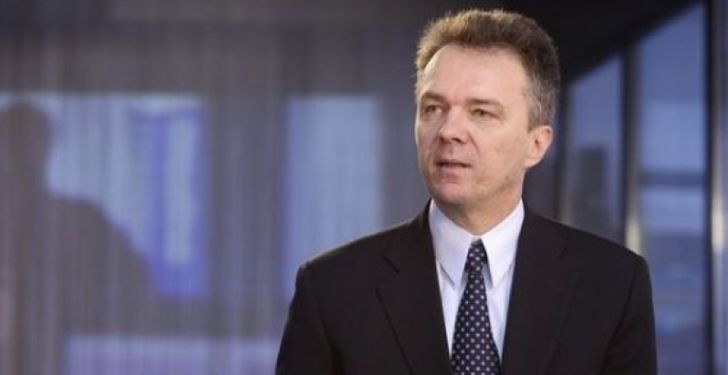As for the “calming” of the energy market, if by that we mean the return to low prices, I don’t think that will happen anytime soon, for the simple reason that the energy transition we are in and which is based on increased efficiency and the development of sustainable energy sources can only be achieved with high energy prices, which force us to a different type of behavior, says Radu Crăciun, President – General Manager of BCR Pensii and President of the Association for Privately Administered Pensions in Romania (APAPR), in an exclusive interview for Energynomics.
How do you see the main economic indicators for 2023? When do you think the energy markets will calm down and we will resume real economic growth?
I think that even in 2023 the central banks will have zero priority in bringing inflation under control. At stake is their credibility, and that is an asset they cannot afford to lose. As a result, entering a recession may be the price they are willing to pay, choosing the lesser evil. However, a number of aspects are worth emphasizing. The probability of a recession is not equal on all meridians. Western Europe is the prime suspect, while the US may escape, marginally. Romania is in the same situation. What we must not forget is that, after all, the term technical recession has a rather loose definition, two consecutive quarters of negative growth, which by no means implies a major crisis. After all, historically speaking, recessions have been a normal part of business cycles.
Of course, the great unknown is the extent to which severe weather developments will not put a major strain on Europe’s accumulated gas reserves, which, from this point of view, are the weak link of the world economy. The closure of some companies to prioritize the consumption of the population could have a significant impact on the evolution of the European economy and, through ricochet, on Romania.
As for the “calming” of the energy market, if by that we mean the return to low prices, I don’t think that will happen anytime soon. For the simple reason that the energy transition we are in, which is based on increased efficiency and the development of sustainable energy sources, can only be achieved with high energy prices, forcing us to a different type of behavior.
What was the evolution of Pillar II and Pillar III of pensions in 2022 and what are the prospects for 2023, in terms of volume and yields, but also in terms of diversification of investment instruments?
At the end of October, pillar 2 totaled assets of almost 89.7 billion lei, and pillar 3 of 3.4 billion lei. In 2022 the investment performance of pension funds mirrored the unfavorable evolution of the financial markets, where both bonds and stocks did not provide positive returns. In the period ahead, I expect that, in a first stage, government bonds will start to outperform as inflation declines, followed by stocks. In this context, 2022 will probably remain more of an exception to the consistently positive performance that private pension funds have delivered since launch, year after year.
What will be the effects of major government measures (such as surtax) on real contributions in the economy, and what should have been done, especially in the context of bulging twin deficits?
Romania desperately needs a fiscal consolidation process that will restore balance between budget revenues and expenditures. Such an approach will also have a positive impact on the current account deficit, which is continuously increasing. But a fiscal consolidation implies, on the one hand, the increase of budget revenues primarily by avoiding tax evasion, and, on the other hand, a much more efficient, more responsible and ethical administration of public money.
How much and how far can we roll the debt through loans?
Romania’s debt is not at an exceptionally high level, what should worry us is the rate at which it is growing. A second reason for concern is represented by the high costs of financing for Romania and the fact that this money is not used for investments, for development, but only to support a social security budget with significant deficits and a much oversized public administration. Under these conditions, interest payments will lead to an even greater indebtedness of the country, in an unsustainable process. I don’t think that for now Romania is in danger of losing its “investment grade” label (for T-Bills/ bonds, state securities recommended for investment).
How will European financing instruments help us (Modernization Fund, PNRR measures, etc.) – what beneficial effects will we see and since when?
European financial programs help us only to the extent that we will be able to absorb the allocated funds. Which, unfortunately, is not a certainty. They not only support Romania’s development, but also support the balance of payments and implicitly the exchange rate, at a time when the current account deficit is financed less and less by the capital of strategic investors. Romania cannot accelerate its development without an increase in potential GDP. However, we cannot achieve such an objective with only internal resources. European funds are ideal for such a thing due to their size, but also due to the discipline and reforms they impose.
What are the latest trends in occupational pensions segments?
BCR Pensii is, until now, the only company authorized to administer occupational funds. These are long-term savings vehicles that allow large employers, such as those in the energy sector, to create dedicated pension funds for their own employees. Unlike Pillar 3, they are negotiable to each institutional client’s preference, benefit from lower fees and have employee retention mechanisms that Pillar 3 does not.

